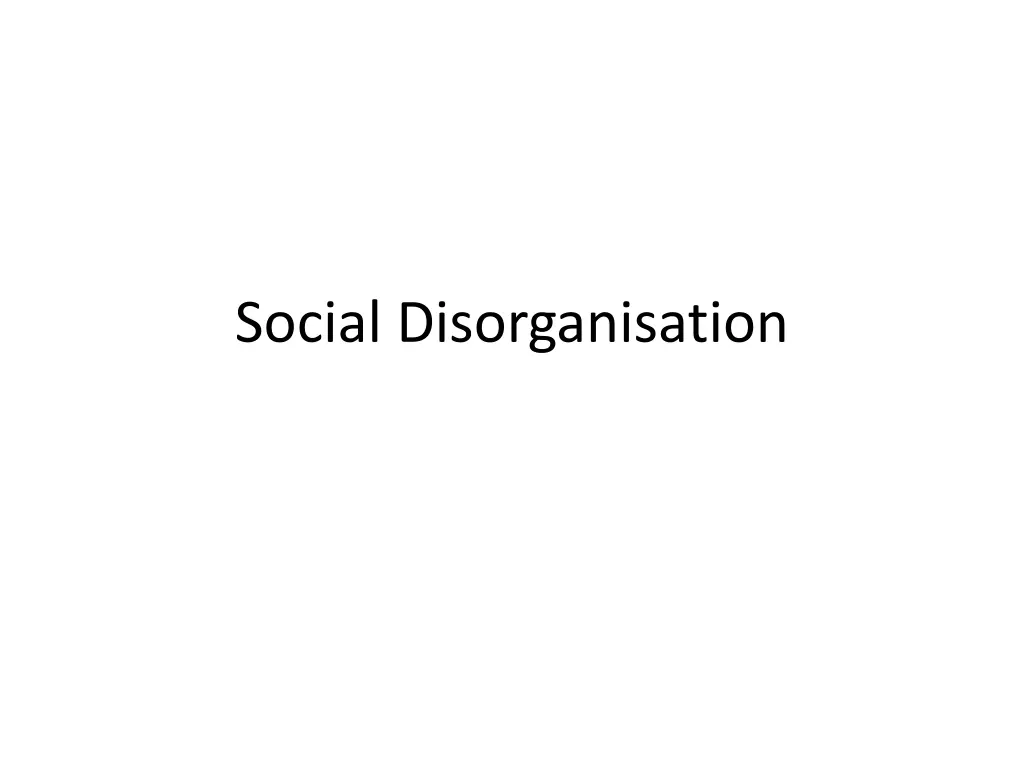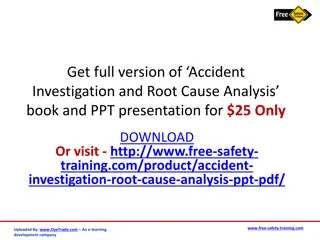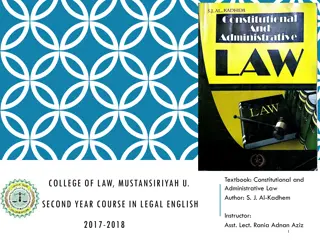
Understanding Social Disorganisation and Its Impact on Communities
Explore the concept of social disorganisation, which refers to the breakdown of relationships within social groups like families or societies. The state of disequilibrium and lack of solidarity can lead to conflicts, disruptions, and a loss of control. Learn about the characteristics, types, and causes of social disorganisation, including personal, family, and community factors. Gain insights into how factors like division of labor, violation of social rules, and cultural lag contribute to this phenomenon, affecting communities in various ways.
Download Presentation

Please find below an Image/Link to download the presentation.
The content on the website is provided AS IS for your information and personal use only. It may not be sold, licensed, or shared on other websites without obtaining consent from the author. If you encounter any issues during the download, it is possible that the publisher has removed the file from their server.
You are allowed to download the files provided on this website for personal or commercial use, subject to the condition that they are used lawfully. All files are the property of their respective owners.
The content on the website is provided AS IS for your information and personal use only. It may not be sold, licensed, or shared on other websites without obtaining consent from the author.
E N D
Presentation Transcript
Social disorganisation is the process by which the relationship between the members of the social group, whether a family, a society or a nation, are broken down or dissolved Social Disorganisation implies relative disharmony between the two groups or individual
According to Durkhiem Social disorganisation as a state of disequilibrium and a lack of social solidarity or consensus among the members of a society According to Mowerer, social disorganisation is the process by which the relationships between members of a group are shaken
It arises out of a breakdown in the function of parts of the cultural reference to one another It is a situation in which attitudes and values are not in accord and the vital relationships of the social groups thereby interrupted or dissolved Social disorganisation causes a weakening of group solidarity, loss of control over its members and therefore disintegration organization with conflict and
Characteristic of Social Disorganisation Conflicts of Mores and of Institutions Transfer of functions from one Group to Another Individualisation Change in the Role and Status of the individuals
Types of Social Disorganisation Personal Disorganisation: It includes juvenile and adult delinquency, crime in all manifestations, prostitution, suicide Family Disorganisation: It includes divorce, disruption of the family Community Disorganisation: It is indicated by the illiteracy of the population, poverty, political corruption, crime, etc.
Causes of Social Disorganisation Division of Labours Violation of Social Rules Industrialisation Cultural Lag Natural Catastrophes War Maladaptation of inherited nature to Culture






















